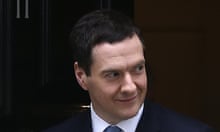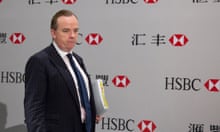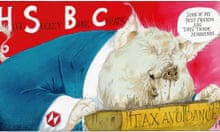The banking giant is not the first, and will not be the last, financial behemoth to garner uncomfortable headlines. Its current crisis stems in part from it being too big, too unwieldy to control. Structural problems include:
1 Inadequate country risk assessments
According to a 2012 US Senate report into money laundering, the legal counsel in the Office of the Comptroller of the Currency observed that problems with the bank’s 2009 “country risk assessments extended beyond Mexico to other countries as well. Some of the countries that should have been rated as having a high risk of money laundering, but were instead rated standard or medium, included Antigua, the Bahamas, Cayman Islands, and Switzerland.” Why was the bank apparently so unconcerned about its operations in these tax havens?
2 Questionable oversight of overseas subsidiaries from London
Appearing before the Treasury select committee in 2009, Chris Meares, former head of HSBC Private Bank, declared: “If our bankers, say, sitting here in the UK, get any hint that there is tax evasion, then under the legal and regulatory system they have to file a suspicious transaction report.” When asked how many were filed, he responded: “Not huge numbers, I am pleased to say, but there are a few and they all get dealt with.” Did they really?
3 Impenetrable relationship with other banks
In the days since Hervé Falciani’s revelations, it has emerged that a new data cache has been handed to police, reportedly showing that hundreds of private client banks worked with HSBC Switzerland. How did the bank police its relationship with these banks and do due diligence on their clients?
4 Fragmented regulatory system
In 2009 Douglas Flint, then group finance director at HSBC, observed: “We ourselves respond to over 500 regulators, so to have strategies shared by 500 different regulatory systems would be a challenge … I think there are elements of fragmented regulation that are now being addressed. I think there were elements of lack of transparency as to where the end risk in the broadest definition of the financial system resided.” What did the bank do to improve transparency?
5 Role of non-executive directors
HSBC boasts a raft of non-executive directors with impressive CVs who juggle many other roles. Could they devote sufficient time to oversee the bank’s operations? Did they have the expertise to assess the risks facing it?








